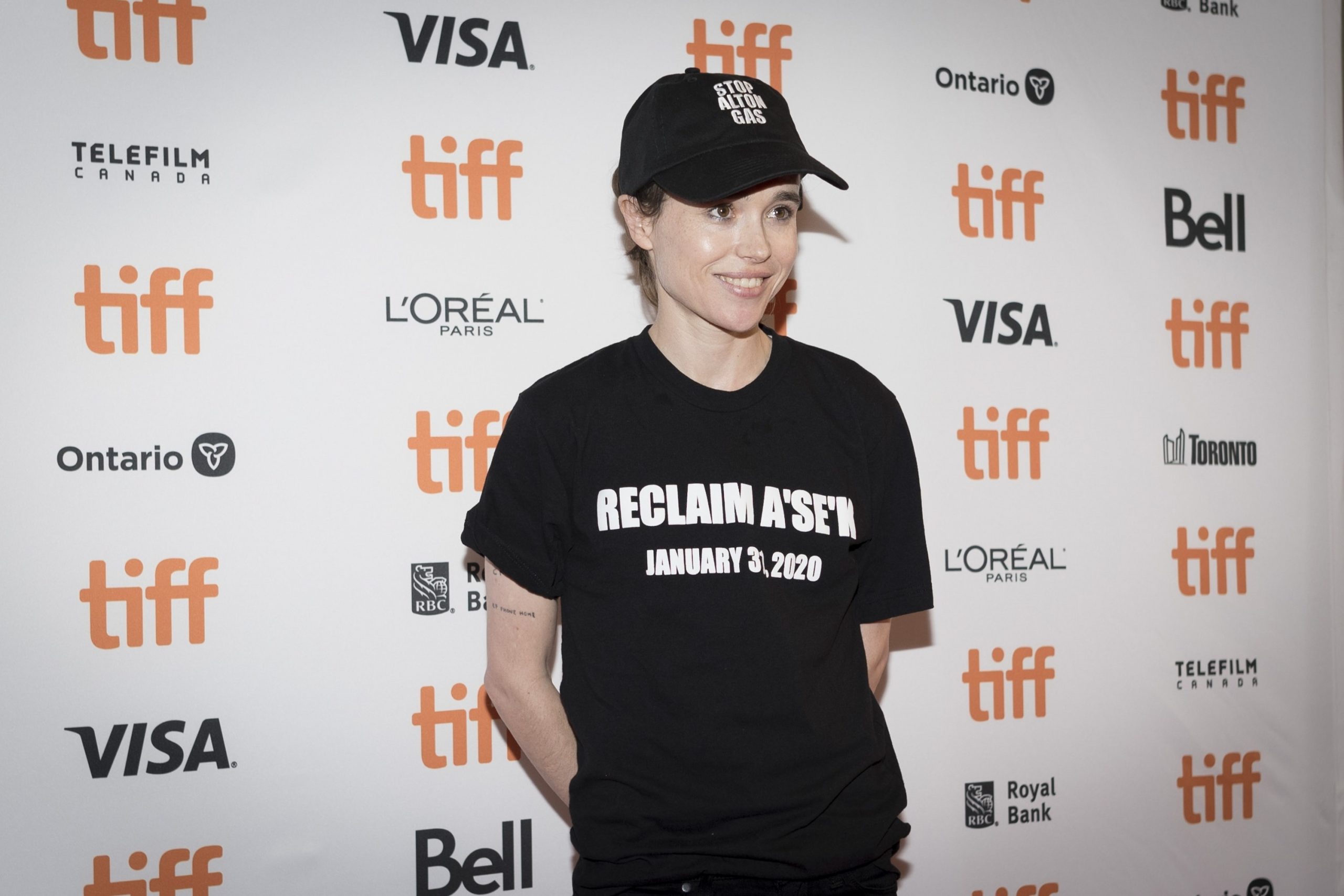TORONTO — The COVID-19 pandemic and cultural climate surrounding it have added a new level of resonance to Ellen Page’s latest projects.
The Oscar-nominated Canadian actress stars in the Netflix series “The Umbrella Academy,” which debuts its second season Friday with a look at the civil rights movement and protests of the 1960s.
The storyline unfolds after the seven siblings with extraordinary powers travel back in time to the early part of the decade.
Such scenes are reminiscent of the current Black Lives Matter protests for racial and social justice, which the Halifax-raised Page recently attended in New York.
Page says such events give her a sense of hope for change, but she’s also been dismayed to see some protesters caught up in clashes escalated by police.
“That was obviously incredibly painful to witness what was happening, what continues to happen in so many places right now,” Page said in an interview.
“I think it’s so unfortunate that it needs to happen,” she added. “But of course, when you’re there and in the midst of so many people coming together, it was quite a beautiful thing to see.
“And then of course, everything we’re seeing from what’s going on in Portland and potentially other places more and more is obviously incredibly frightening.”
Shot in Toronto, season 2 of “The Umbrella Academy” delivers a timely reflection on systemic racism, police brutality and the struggle for LGBTQ rights.
It happens after time-traveller Five, played by Aidan Gallagher, uses his powers to transport the dysfunctional family away from a 2019 apocalypse ignited by Page’s character, Vanya.
The siblings wind up separated in different years in Dallas, Texas in the early 1960s. As they try to stop an imminent doomsday, they also carve out new identities and face major social and political issues in their own backyards.
The season proves to be a critical one for Vanya in particular, as she discovers new things about herself and her powers, and falls in love.
Page praised those who’ve dedicated their lives to civil rights movements, including transgender rights activists Miss Major and the late Marsha P. Johnson.
“Individuals (who) really put their lives on the line and gave everyone else hope and gave me so many of the rights and opportunities I have,” said Page, who publicly came out as gay during a speech at a human rights conference in 2014.
“I think we just have to do what we can every day with our own privilege. And I think that’s where hope lies, in that action.”
Edmonton-raised series creator and showrunner Steven Blackman said they wrote the season over a year ago, shot it late last year and did most of the post-production remotely during the pandemic.
The writers set the characters in the ’60s because “there was just so much going on” in the U.S., from the Cold War to the Cuban Missile Crisis and the assassination of President John F. Kennedy.
Juxtaposing characters from the present day with the past shows how some things have improved, but many haven’t, he said.
“We knew that even though we’re a heightened-reality show, if we were going to go to the ’60s, we weren’t going to glaze over racial injustice,” said Blackman, who is also an executive producer.
“We weren’t going to glaze over homophobia, those topics; that we were going to tell real, grounded stories.”
Page often uses her platform to speak out against injustices and amplify underrepresented voices.
In her documentary “There’s Something in the Water,” which hit Netflix in March, she shines a light on marginalized groups in Nova Scotia affected by what’s known as environmental racism.
The pandemic exacerbates the issue, she said.
“Communities where environmental racism is a problem, needless to say there are higher rates of cancer, respiratory issues, et cetera,” said Page, who got an Oscar nomination for playing a pregnant teen in “Juno” and two Emmy nominations for her reality series “Gaycation,” which explores LGBTQ experiences around the world.
“And those people are obviously then disproportionately affected by COVID. So it’s like all of these issues intersect…. For those who maybe weren’t so aware, I think COVID has really revealed just the degree of inequality, the degree of systemic racism. And I certainly hope things start to change.”
This report by The Canadian Press was first published July 30, 2020.
Victoria Ahearn, The Canadian Press













